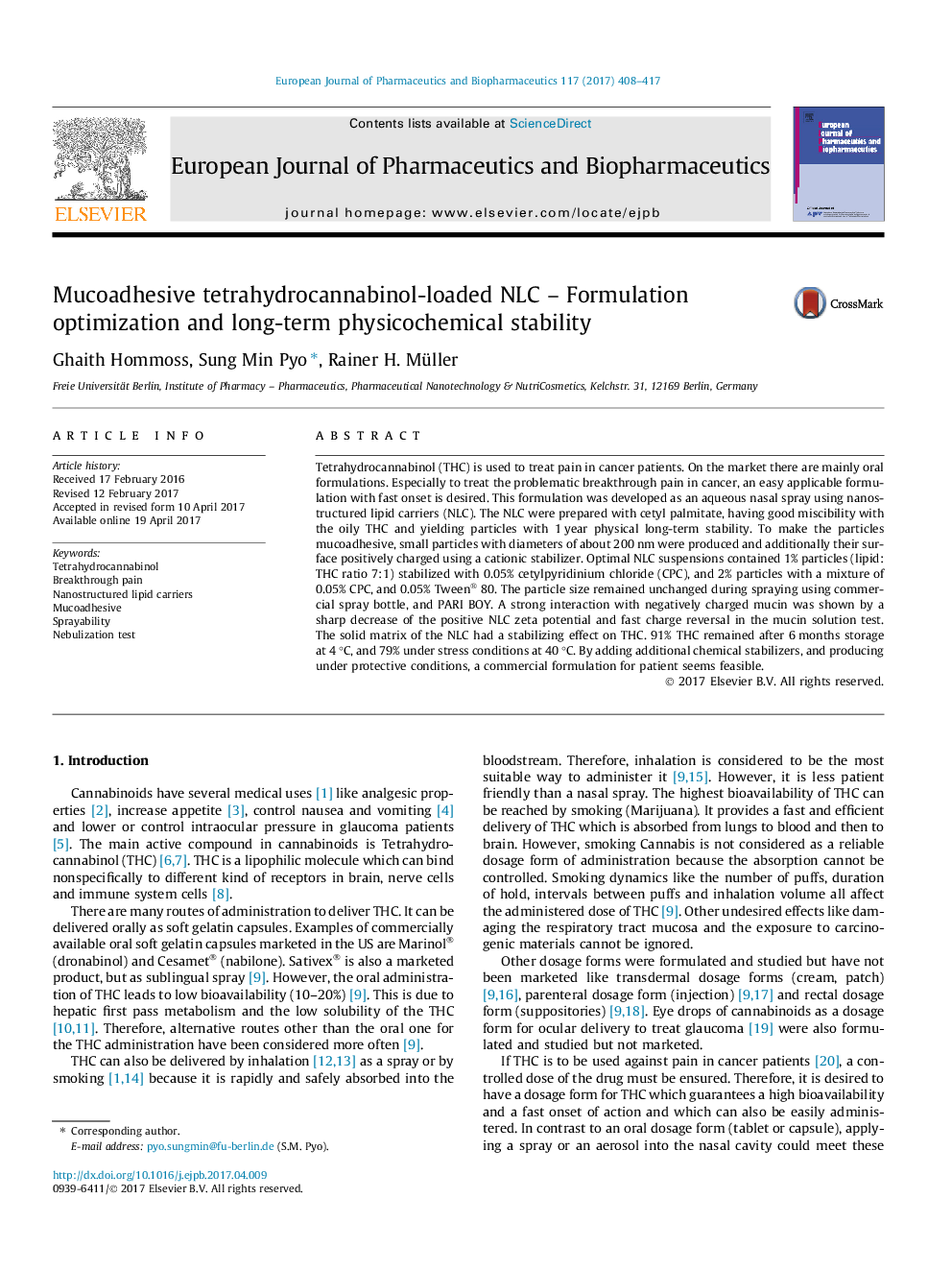| Article ID | Journal | Published Year | Pages | File Type |
|---|---|---|---|---|
| 5521530 | European Journal of Pharmaceutics and Biopharmaceutics | 2017 | 10 Pages |
Tetrahydrocannabinol (THC) is used to treat pain in cancer patients. On the market there are mainly oral formulations. Especially to treat the problematic breakthrough pain in cancer, an easy applicable formulation with fast onset is desired. This formulation was developed as an aqueous nasal spray using nanostructured lipid carriers (NLC). The NLC were prepared with cetyl palmitate, having good miscibility with the oily THC and yielding particles with 1 year physical long-term stability. To make the particles mucoadhesive, small particles with diameters of about 200 nm were produced and additionally their surface positively charged using a cationic stabilizer. Optimal NLC suspensions contained 1% particles (lipid:THC ratio 7:1) stabilized with 0.05% cetylpyridinium chloride (CPC), and 2% particles with a mixture of 0.05% CPC, and 0.05% Tween® 80. The particle size remained unchanged during spraying using commercial spray bottle, and PARI BOY. A strong interaction with negatively charged mucin was shown by a sharp decrease of the positive NLC zeta potential and fast charge reversal in the mucin solution test. The solid matrix of the NLC had a stabilizing effect on THC. 91% THC remained after 6 months storage at 4 °C, and 79% under stress conditions at 40 °C. By adding additional chemical stabilizers, and producing under protective conditions, a commercial formulation for patient seems feasible.
Graphical abstractDownload high-res image (190KB)Download full-size image
